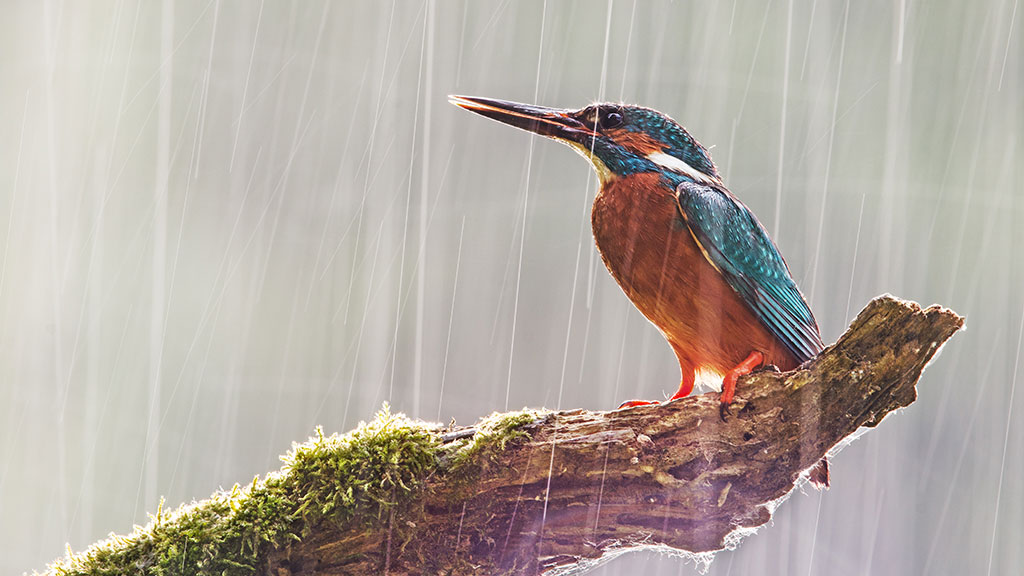Why children are spending less time outside - and what we can do about it
According to a 2016 survey, 75% of children in the UK are getting less time outside than prison inmates. WWT's learning manager Mark Stead looks at why this is, and how we can get our children outside.

According to a 2016 survey, 75% of children in the UK are getting less time outside than prison inmates. WWT's learning manager Mark Stead looks at why this is, and how we can get our children outside.
Do you remember climbing trees and playing Pooh-sticks as a child? I do.
But ask one of today’s children when they’re older what they liked to do and you’ll no doubt get a different answer.
There are many reasons why so few children feel connected to nature. They include perceived danger from traffic and strangers, and a lack of accessible green or blue spaces.
Add to this the increased use of technology, and you’re more likely to find today’s children glued to a screen than climbing a tree. The evidence suggests that children from economically disadvantaged communities are even less likely to experience direct contact with nature than those from more affluent areas.

Does it matter if children are spending less time outside?
The answer is yes if you consider the benefits these children are missing out on. Direct contact with nature has been shown to positively affect physical and mental wellbeing. Links between time spent in nature and reduced stress levels have long been recognised, and for children who shun team sports, time outdoors provides additional opportunities for physical exercise.
There’s increasing evidence that taking part in activities in natural habitats helps children to develop creativity, imagination and spatial awareness. It can also have a positive impact on their self-esteem and confidence.
Worryingly, studies suggest that if children lack direct contact with nature, they are much less likely to care for it and take action to protect it.

What we can do to help our kids spend more quality time in nature
Fortunately, WWT’s formal learning programme is working to address these issues. Every year we welcome 50,000 school children to our centres, where they learn about wetlands and interact with our amazing wildlife.
On school visits, we connect with children and teachers from all backgrounds, many of whom would not otherwise visit our centres. Those from economically disadvantaged backgrounds particularly stand to gain from the positive benefits of contact with nature.
I have a real passion for engaging these children. I grew up on a council estate, so I understand where they’re coming from. My grandparents shared their passion for nature with me from an early age. But this was not the norm for kids from our estate. I want to make sure that children from all backgrounds are given the opportunities many of my classmates missed out on.
Inspiring Generations – a project delivered in partnership with HSBC - was a partnership that started in 2013 and ran until 2019, providing free visits to our centres for over 75,000 pupils from schools in disadvantaged areas.
Our research shows that children from urban areas know more about the wildlife in zoos and on TV than the wildlife of their local ‘patch’. It would be a shame if we raise a generation of children that can identify a lion, but not an otter. This is especially important if we want these children to help protect the wildlife on their doorstep.
The good news is that all children benefit from a visit to a wetland centre. Many young people participating in our school visits programme have been inspired to spend more time outdoors, and to take action to protect wildlife where they live. This shows just how important the Inspiring Generations scheme is – both for the children themselves and for our natural world.
We all have a role to play – as parents, grandparents, teachers or someone who shares their passion with the next generation. So next time you see a child in a hide, think of them as a potential future Scott, Attenborough or Packham, and take a moment to share something exciting with them. Maybe one day they’ll tell their grandchildren how they liked to watch the birds and climb trees. Only time will tell.
Find out more about arranging a school trip to a WWT centre

Wetlands and wellbeing
Read more about our latest research on wetlands and human health, and get ideas for spending time outside whatever the weather.
Find out moreBy WWT's National Learning Manager, Mark Stead



